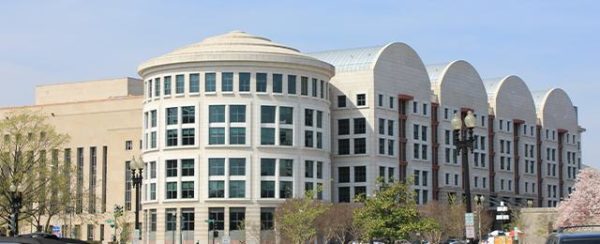
- Details
- By Lenzy Krehbiel Burton
TULSA, Okla. — Citing the “first to file rule,” a federal judge has granted a motion to transfer the Shawnee Tribe’s CARES Act lawsuit to the District Court for the District of Columbia.
In a six-page opinion, Chief Judge John Dowdell with the Northern District of Oklahoma ruled Tuesday that the Shawnee Tribe’s lawsuit against the Department of the Treasury over its share of CARES Act money should be moved to the same venue that has already heard similar complaints from several tribes, including the Prairie Band of Potawatomi, Agua Caliente Band of Cahuilla Indians and the Confederated Tribes of the Chehalis Reservation.
“The chronology of actions is not in dispute: the plaintiffs in Confederated Tribes brought their suit in the D.C. district court long before the Shawnee Tribe filed its suit here in the Northern District of Oklahoma,” Dowdell wrote. “The parties are also similar. The plaintiffs in Confederated Tribes were, like the Shawnee, due to receive Title V funds (from the CARES Act), and like the Shawnee, they sued Mr. Mnuchin in his official capacity as Secretary of the Treasury. Finally, the issues in this case substantially overlap with the issues in Confederated Tribes.”
The tribe filed suit in June after the Department of the Treasury announced that the Shawnees would receive $100,000 in federal relief funds through the CARES Act – the minimum amount allowed.
Headquartered in Miami, Okla., the Shawnee Tribe has about 3,000 enrolled citizens. However, it does not participate in the Department of Housing and Urban Development’s Indian Housing Block Grant program, from which the Treasury department pulled enrollment data to help determine funding allocations.
According to the Shawnee Tribe’s complaint, the decision to rely on that data set instead of the certified enrollment count provided to the Treasury meant the allocation was based on inaccurate numbers and thus reduced the amount the tribe would be eligible to receive.
More Stories Like This
Native News Weekly (August 25, 2024): D.C. BriefsUS Presidents in Their Own Words Concerning American Indians
Top Five Most-Read Stories in 2025 on Native News Online
Tribal Nations in SD are Betting on Tourism on Reservations
This Day in History — Dec. 29, 1890: Hundreds of Lakota Killed During the Wounded Knee Massacre
Help us defend tribal sovereignty.
At Native News Online, our mission is rooted in telling the stories that strengthen sovereignty and uplift Indigenous voices — not just at year’s end, but every single day.
Because of your generosity last year, we were able to keep our reporters on the ground in tribal communities, at national gatherings and in the halls of Congress — covering the issues that matter most to Indian Country: sovereignty, culture, education, health and economic opportunity.
That support sustained us through a tough year in 2025. Now, as we look to the year ahead, we need your help right now to ensure warrior journalism remains strong — reporting that defends tribal sovereignty, amplifies Native truth, and holds power accountable.
 The stakes couldn't be higher. Your support keeps Native voices heard, Native stories told and Native sovereignty defended.
The stakes couldn't be higher. Your support keeps Native voices heard, Native stories told and Native sovereignty defended.
Stand with Warrior Journalism today.
Levi Rickert (Potawatomi), Editor & Publisher
